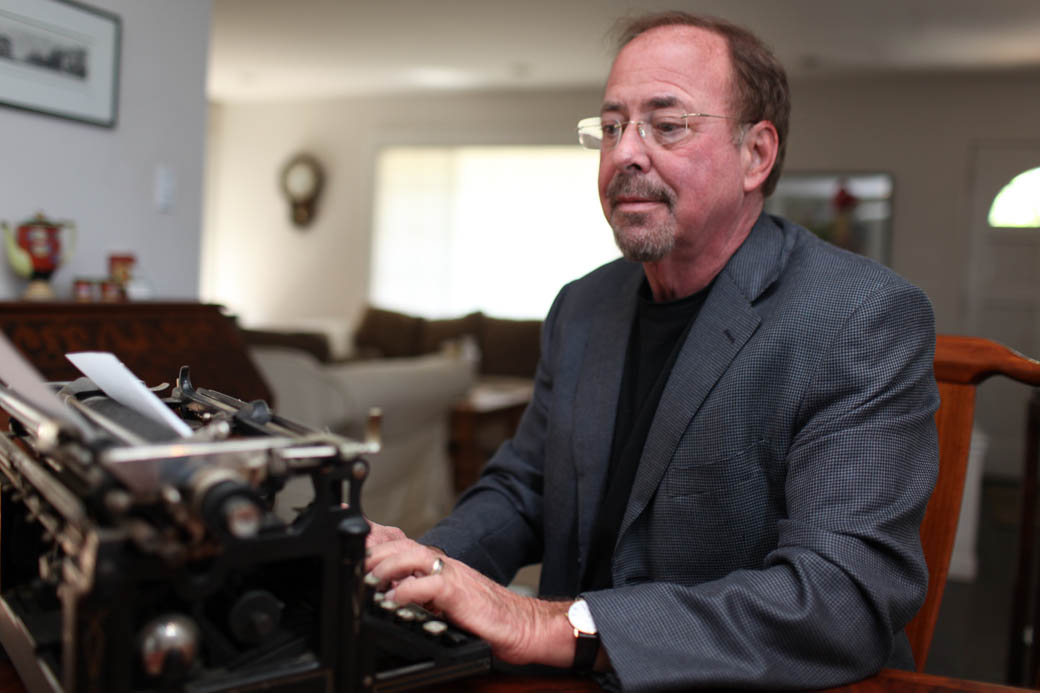
Martin Varsavsky: Entrepreneurs have to be prepared for failure—and success
SIME MIA is a digital business conference supported by Knight Foundation. Below, Camila Souza, co-founder of pFunk Media and PR manager of SIME MIA, interviews Martin Varsavsky (pictured here), one of the speakers for the event, which will be held at the New World Center in Miami Beach on Dec. 3-4. Above: Martin Varsavsky. Photo credit: Flickr user Adam Tinworth.
SIME MIA will bring together some of the world’s most innovative technologists, media executives and venture capitalists to share and build new ideas in the digital space. The event is a partnership between SIME, an industry institution in Europe, and MIA Collective, with support provided by Knight Foundation.
Martin Varsavsky is an Argentine-Spanish entrepreneur who has founded seven companies in the past 20 years. Varsavsky’s current venture is Fon. With more than 12 million hotspots, Fon says it is the largest Wi-Fi network in the world. We asked Varsavsky a few questions about his success and launching startups.

Related Links
“Shel Israel: Awareness essential in weighing benefits of tech against loss of privacy” on KnightBlog
“Christian Hernandez: Miami needs high-profile companies to capture investor interest” on KnightBlog
“Technology and art collide in Miami the week of Art Basel” on KnightBlog
“Glass-activated contemporary art to premiere at SIME MIA” on KnightBlog
Fon set out eight years ago to spread the power of Wi-Fi through a user-generated infrastructure. How has the shift from computers to laptops to mobile affected Fon’s strategy?
M.V: The surge in smartphones had a huge impact on Fon. Up until the launch of the iPhone in 2007 Fon had a very hard time and almost had to close down. It was only when mobile carrier networks became strained because of huge data usage from smartphones did Fon reach its true potential. The explosion in mobile data also directed us towards a new revenue stream: data offloading, (which is moving data from mobile networks to other technologies, such as Wi-Fi).
You have a successful investment portfolio that includes Tumblr and Vuze. What do you look for when making a decision to invest in an early-stage company? M.V: I have a very specific investment philosophy that allows me to invest my own money and have no fiduciary responsibility to anyone but myself: I only invest in products I would use, at valuations I can stomach and with entrepreneurs I like. Usually [I only invest] in things I have experience in, such as user-driven Internet products or connected hardware.
As an active investor in the United States, Latin America and Europe, you’ve had your ear to the ground for some time. What are some key changes you’ve seen in the investment landscape of these regions?
M.V: A few years ago it was all about new social networks, whereas now social networks are established and it is more about leveraging the power of these networks, be it via social login or sharing, to increase users. Another trend I am seeing is the increase in connected projects and a big focus on home automation, such as my portfolio company SmartThings. The successful entrepreneur today should be prepared to be an effective leader, be passionate and know how to deal with failure. In your opinion and experience, what are entrepreneurs often not prepared for when launching a startup? M.V: There’s a lot of talk about failure in entrepreneurship and that makes sense as most startups fail. But what I have seen is that while we focus a lot on entrepreneurs not being prepared for failure, the opposite is also true: Many are not prepared for success. The proof of this is that there are few very successful startups where the founder is the CEO after achieving considerable success. This is because many times what it takes to start a business are not the same skills as it takes to run a business. You’ve been to South Florida before; what do you think of the entrepreneurial growth in the last few years? Do you foresee ever moving to Miami? M.V: The growth of Miami has been incredible over the past decade, and the entrepreneurial community, while still lagging behind [New York], Boston and [San Francisco], is one of the top in the country. I actually spend about three months out of the year here, splitting my time between Miami, [New York] and Madrid.
Recent Content
-
Communitiesarticle ·
-
Communitiesarticle ·
-
Communitiesarticle ·


